After changing a few light bulbs and settling in at Bagatai, the Nimba crew set about preparing for the lion's share of our mission: installing the solar array. Little did we suspect the myriad of adventures Conakry had in store for us. Tasks formerly considered mundane became epic romps that took us to every crevice of the city. Gotta love Africa!
The Welder
Both rooftops at Bagatai offer ideal conditions for solar panels - southward-facing, full sun, no obstructions. However, both roofs are flat and the panels needed to be at a slight angle to optimize energy production. Our first assignment: Find a welder and have a mounting rack constructed for the panels.
Luckily, Youssouf had a lead on a welder in the neighborhood, so we pulled together a group of folks with various skills and language abilities with the hope that between all of us we could convey what we needed. Our little posse ambled down the road to Nongo Center, where, after weaving through a series of back alleys, peppered with squawking chickens and cooking fires, and trailed by a increasingly large number of giggling children, we found the welder's workshop in a quiet corner under a shade tree.
Luckily, Youssouf had a lead on a welder in the neighborhood, so we pulled together a group of folks with various skills and language abilities with the hope that between all of us we could convey what we needed. Our little posse ambled down the road to Nongo Center, where, after weaving through a series of back alleys, peppered with squawking chickens and cooking fires, and trailed by a increasingly large number of giggling children, we found the welder's workshop in a quiet corner under a shade tree.
A long and meticulous conference ensued between our group and the welder's group, involving numerous sketches and a lot of back and forth over measurements. Finally, the unassuming (and, as we found out later, brilliantly efficient) welder seemed to understand our project and told us to come back the next afternoon to pick up the rack.
OK, task completed and out of our hands, but would it work? Did the welder really understand our scribbled drawings and mixture of bad French and piecemeal Susu? What would we be picking up tomorrow? We passed away the rest of the day with faint unease.
When we returned the next day, the rack was waiting, and while welded steel does not, as a general rule, twinkle and gleam, the completed rack stood under a tree glittering and perfect - exactly what we needed!
Thanks to our new friend Lamenie, getting the rack back to Bagatai and up on the roof was a breeze. As he strong-armed the whole operation, he regaled us with tales of R&B recording artist, Akon. Lamenie happens to be Akon's personal bodyguard whenever he is in town.
Another trusty Guinean counterpart, El Hadj, helped us secure the rack to the roof with wire and bolts. This rack was not going anywhere. As a final measure, we wrapped the bottom with strips of rubber bicycle tubing to insulate the metal. El Hadj worked with Nimba throughout the entire solar project, receiving crash-course training in electricity as well as solar installation and maintenance. A coffee aficionado, he also knows every great espresso joint in Conakry, which, for Nimba, was almost as important as the solar install.
Nuts and Bolts
While you may come to Guinea thinking you are ready for anything, it simply is not possible to fully anticipate the grandeur of chaos that is Conakry. First, there’s the traffic, which makes gridlock in New York appear orderly and docile. A road considered wide enough for two cars in some other town is a Conakry speedway in which four cars are squeezed within an eyelash’s distance of each other, give or take a motorcycle. A nighttime taxi ride through Conakry can call to mind the more vivid scenes of Road Warrior. The cacophony of horns and complicated hand signals make up for the city's absence of traffic lights and well, rules of the road. (Reality check: no traffic lights, really? Look both ways before you cross the street, at least twice.)
Seriously, anything goes. Sidewalks? Ha. Pedestrians - including the relatively large number of people out for a stroll with their goats - walk in the street wherever they can fit, occasionally jumping out of the way to avoid a rogue taxi. Enterprising folks opt for walking between cars peddling plastic bags of water, phone cards or snacks to frustrated drivers.
Enter Marché Madina – Conakry’s largest market, and one of the busiest in West Africa. Pretty much everything is here from dubious-looking liquids in glass bottles to fine imported cloth to old typewriter parts. If I were, say, an odd-sized bolt or perhaps a lead-acid battery, this is definitely where I would be.
And a good thing, too, because it so happened that the Nimba crew, amid hectic pre-trip packing, mislaid 8 bolts critical to installing the panels (the old "I thought you had them" story). But the search for bolts in Madina is no trip to Home Depot. Once again, we needed a team of expert guides to get the job done. For three days, El Hadj and Lamenie patiently scoured countless boxes of hardware in market stall after market stall, only to come home empty-handed.
On day four, our slightly dejected but hardworking group headed out, steeling ourselves to confront Madina one more time, when Mohamed, our quiet and skillful driver, who could put any NYC cabbie to shame, abruptly pulls over on the shoulder of the highway, making cryptic hand signals. Several young men materialize and Mohamed sends them off to scout for bolts.
On day four, our slightly dejected but hardworking group headed out, steeling ourselves to confront Madina one more time, when Mohamed, our quiet and skillful driver, who could put any NYC cabbie to shame, abruptly pulls over on the shoulder of the highway, making cryptic hand signals. Several young men materialize and Mohamed sends them off to scout for bolts.
After biding our time in the car buying bootleg CDs and whatever else passed by the window, the scouts returned bearing the right bolts. Success! Elated, we decided to venture into Madina anyway to purchase the last essential component for the install - lead acid batteries to store the energy produced by the panels, thus providing electricity at night.
Batteries are bigger and more expensive than bolts, so our search was short and painless. After locating the lead acid batteries and a few other odds and ends, deep in Madina at a combination battery and Persian rug shop, Mohamed and El Hadj, engaged in the delicate and time-consuming art of price negotiation, a ritual that any African market transaction is incomplete without. For bigger ticket items, like the batteries, negotiations can consist of anywhere from 2-10 people and in this case, it was a little unclear, just whose side of the transaction some of the participants represented. In the end, not only did Mohamed and El Hadj secure a good price, but we got a few cadeaux thrown in to boot. Hurray for Nimba's talented and newest team members!
Mounting rack? Check. Bolts? Check. Batteries? Check. Next up? Installing the panels.
Mounting rack? Check. Bolts? Check. Batteries? Check. Next up? Installing the panels.
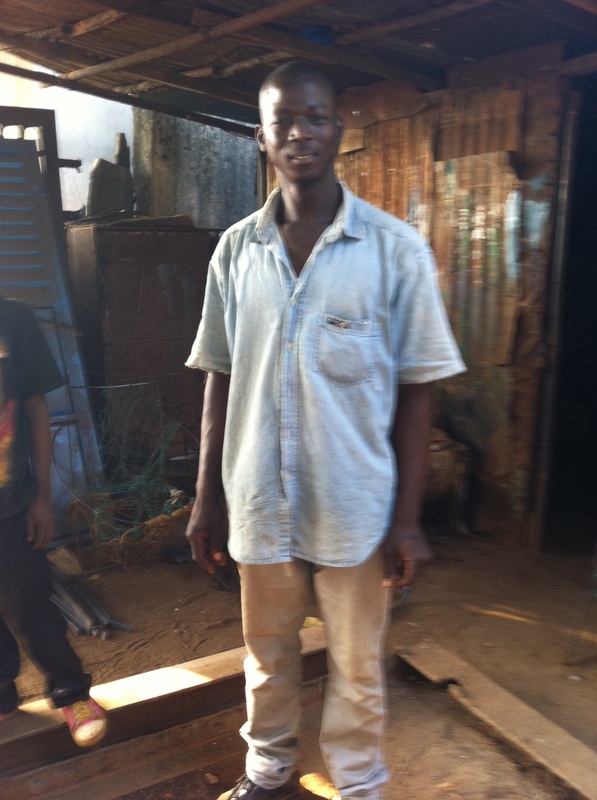
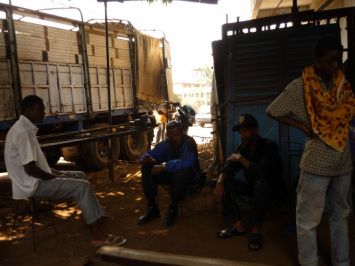
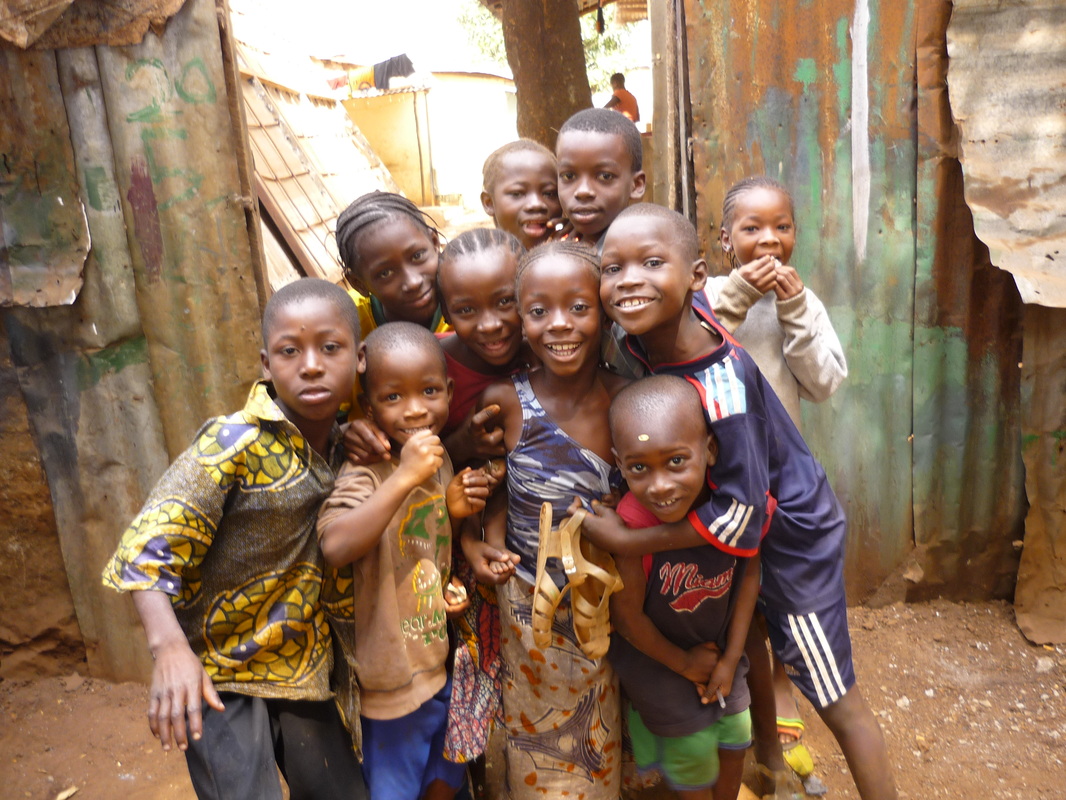
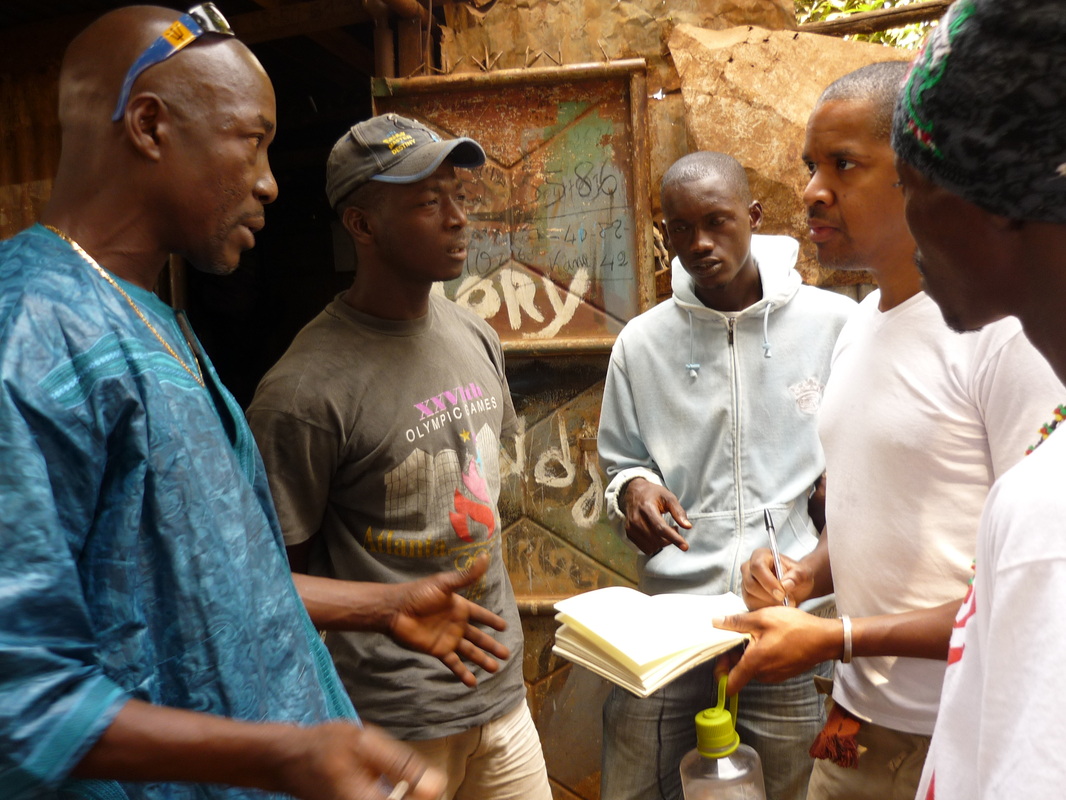
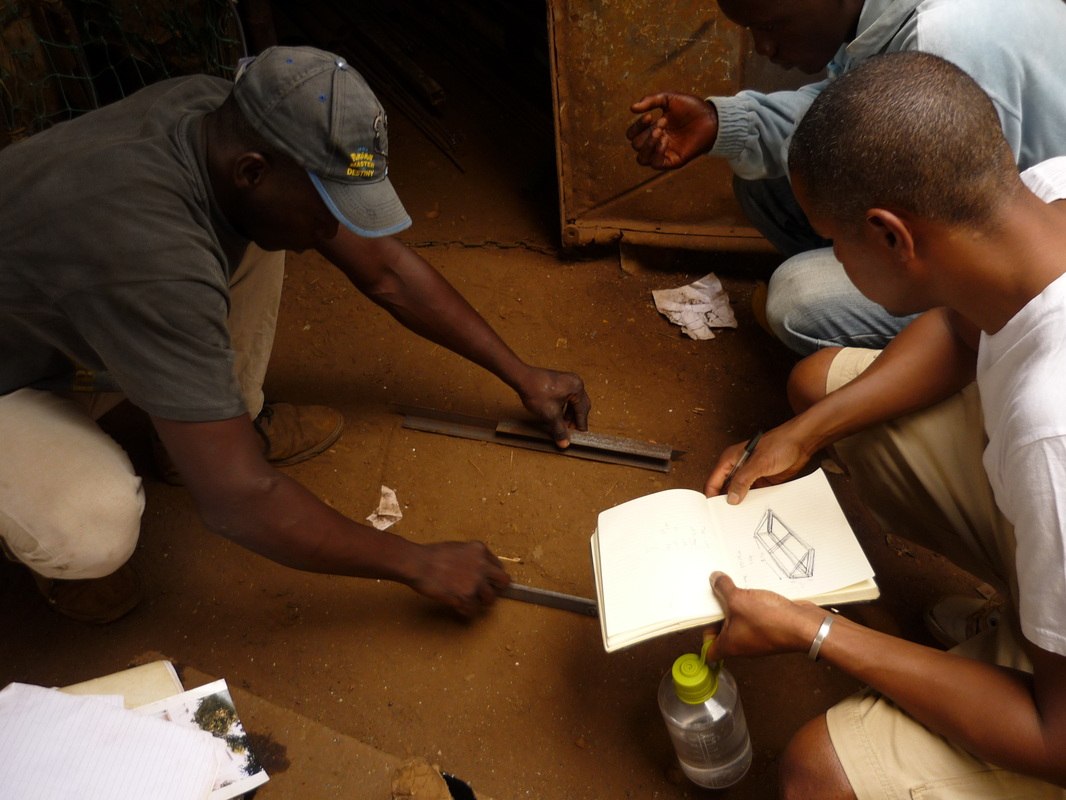
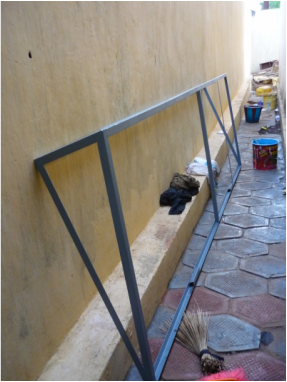
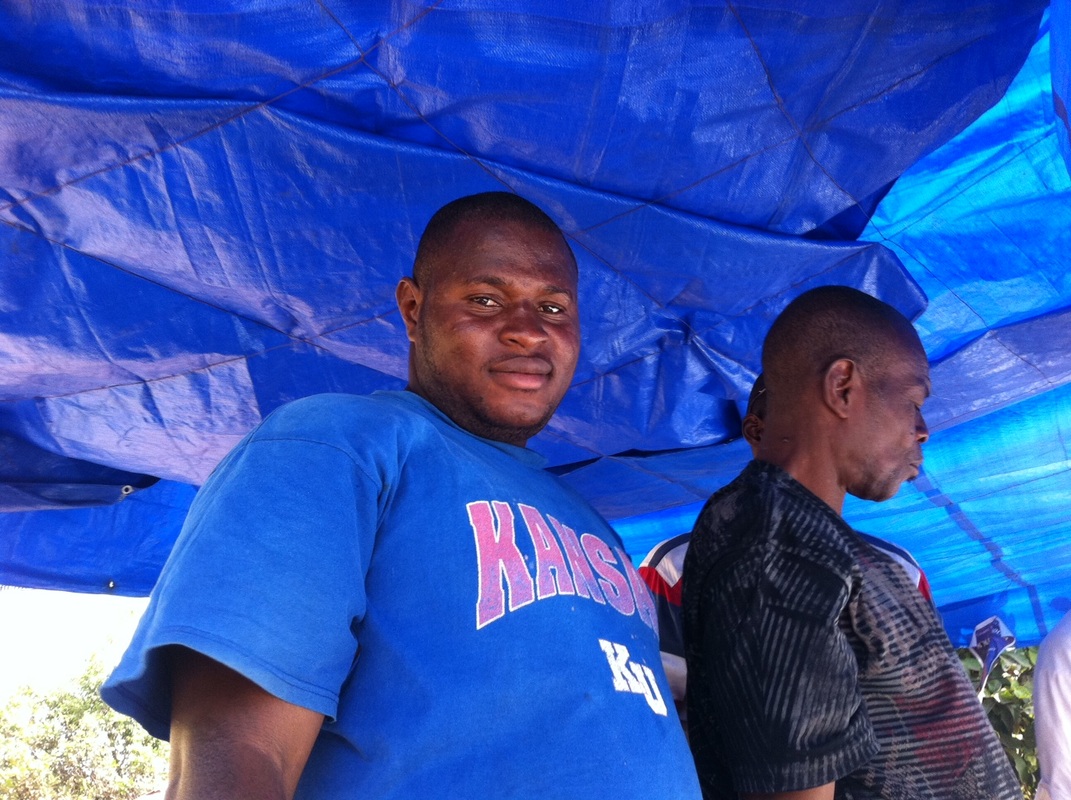
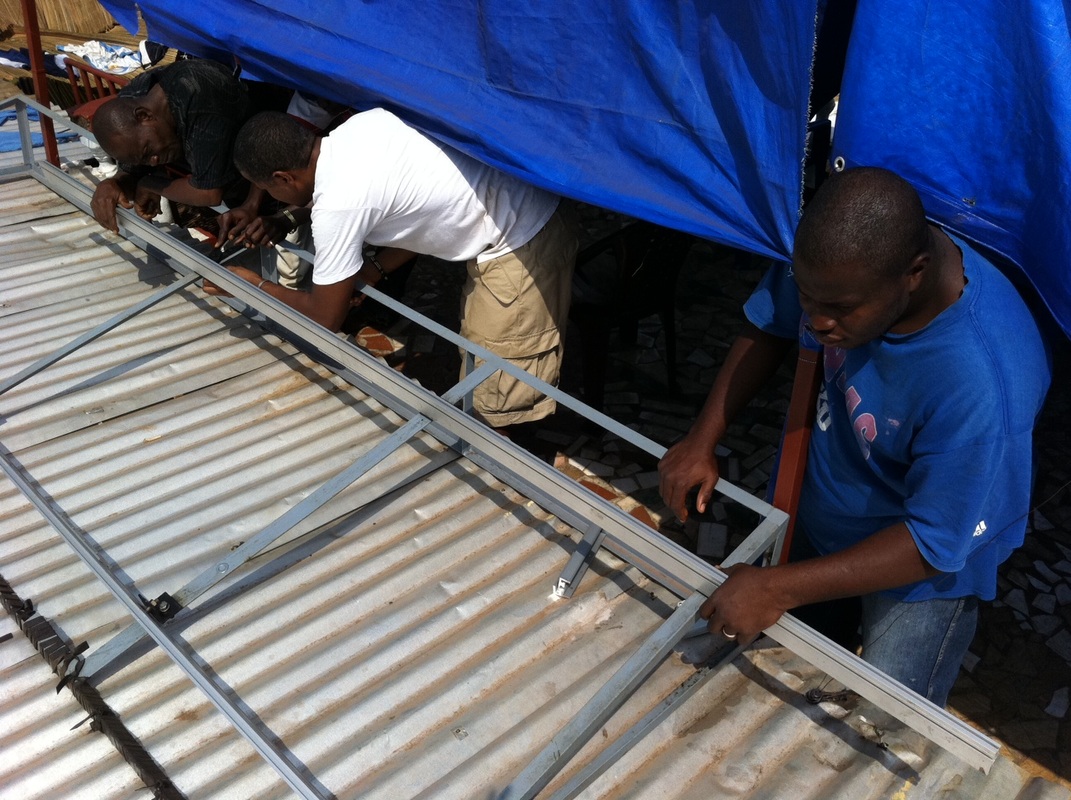
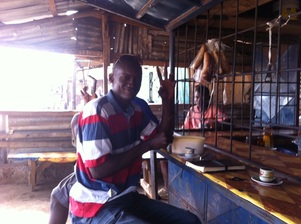
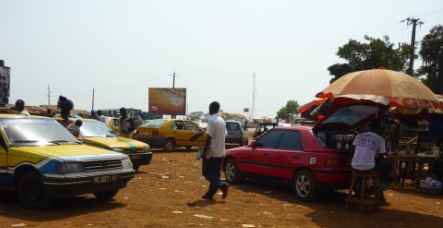
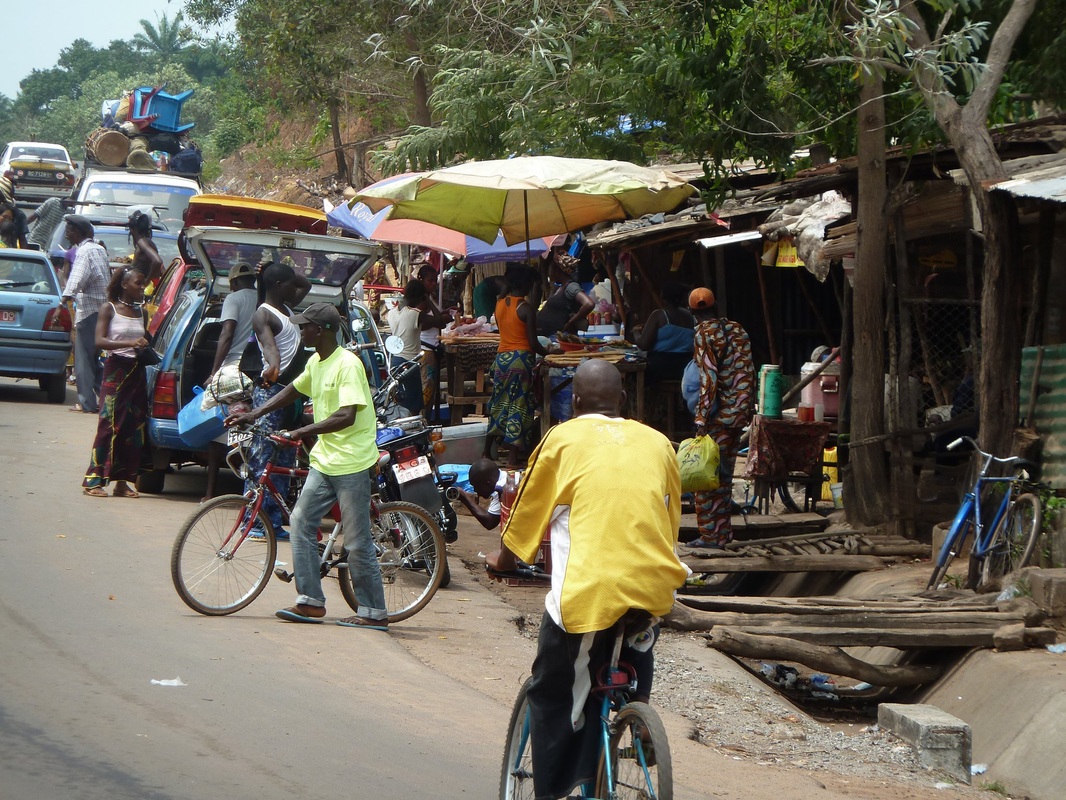
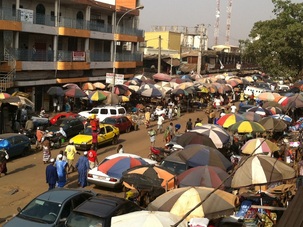
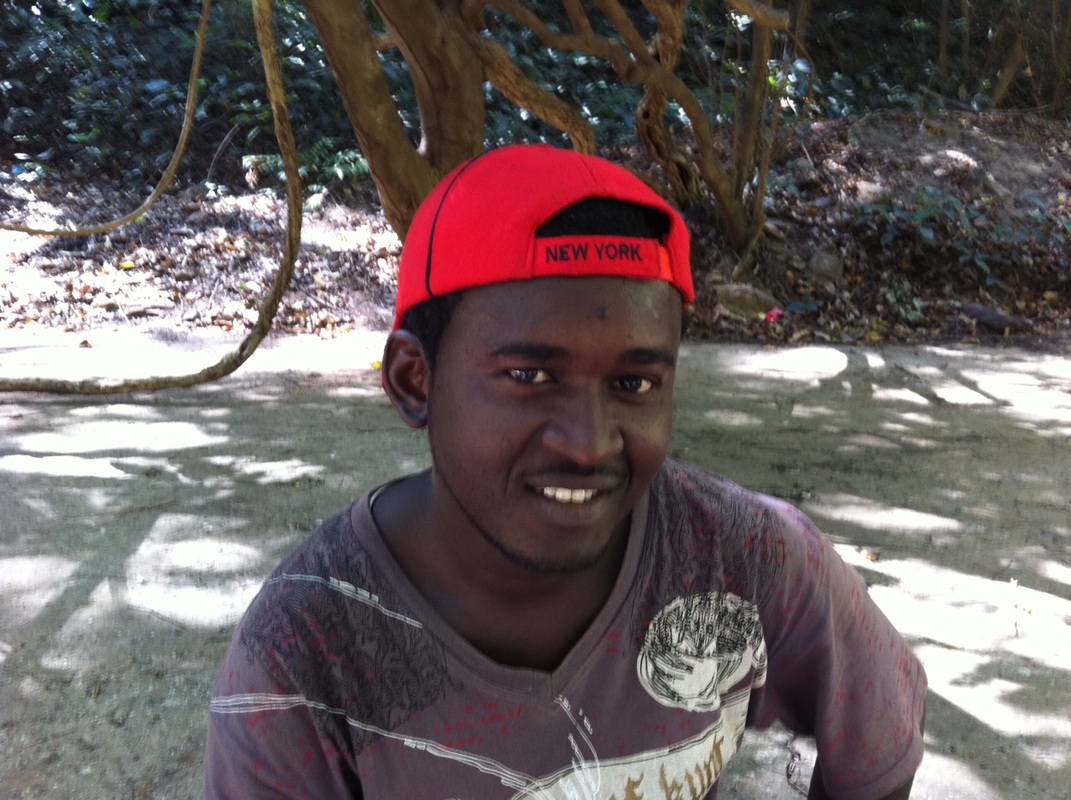
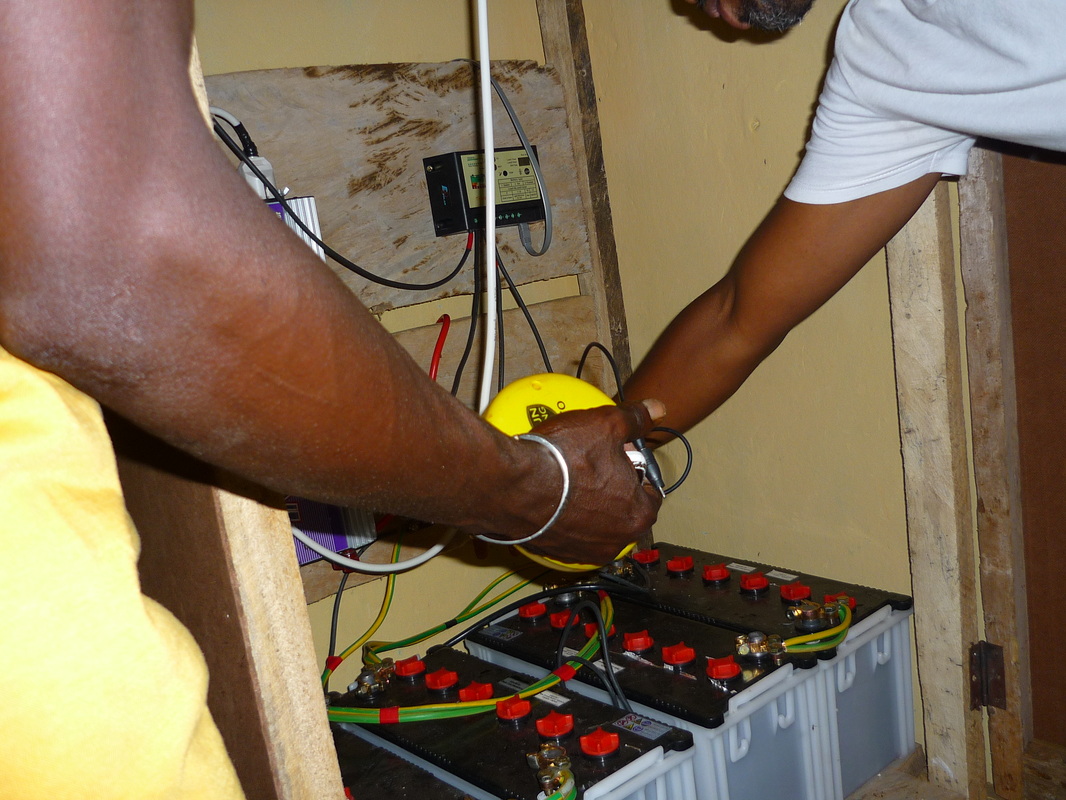
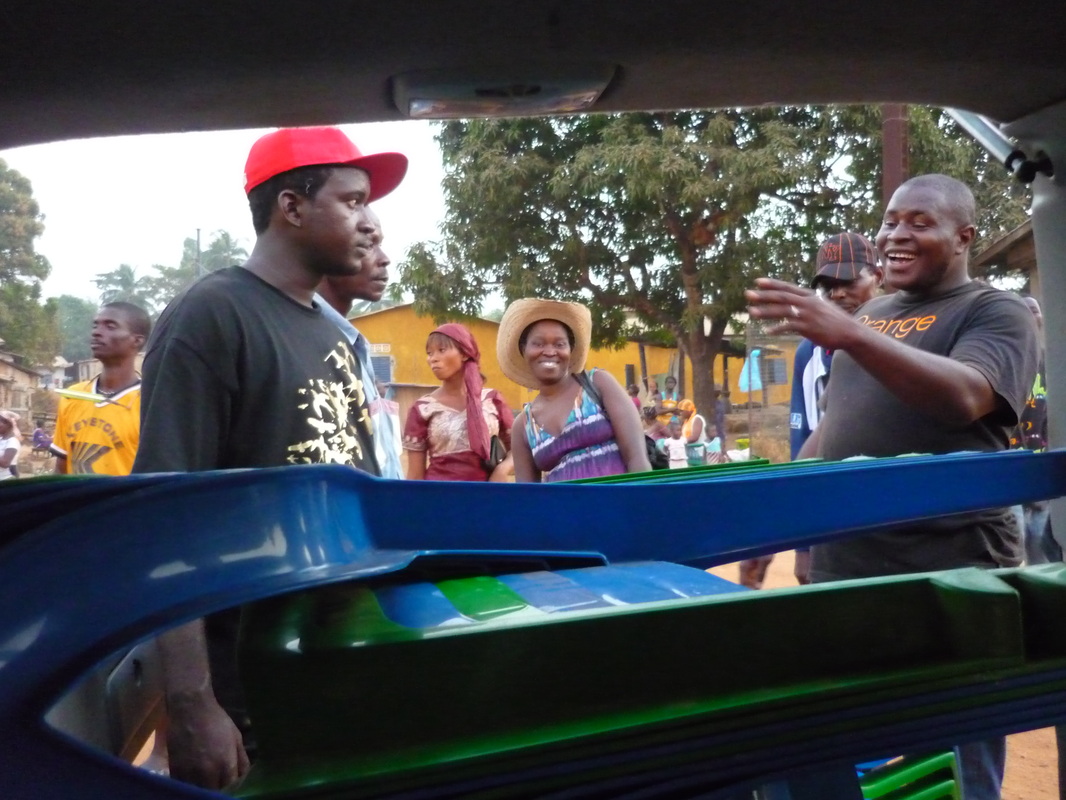
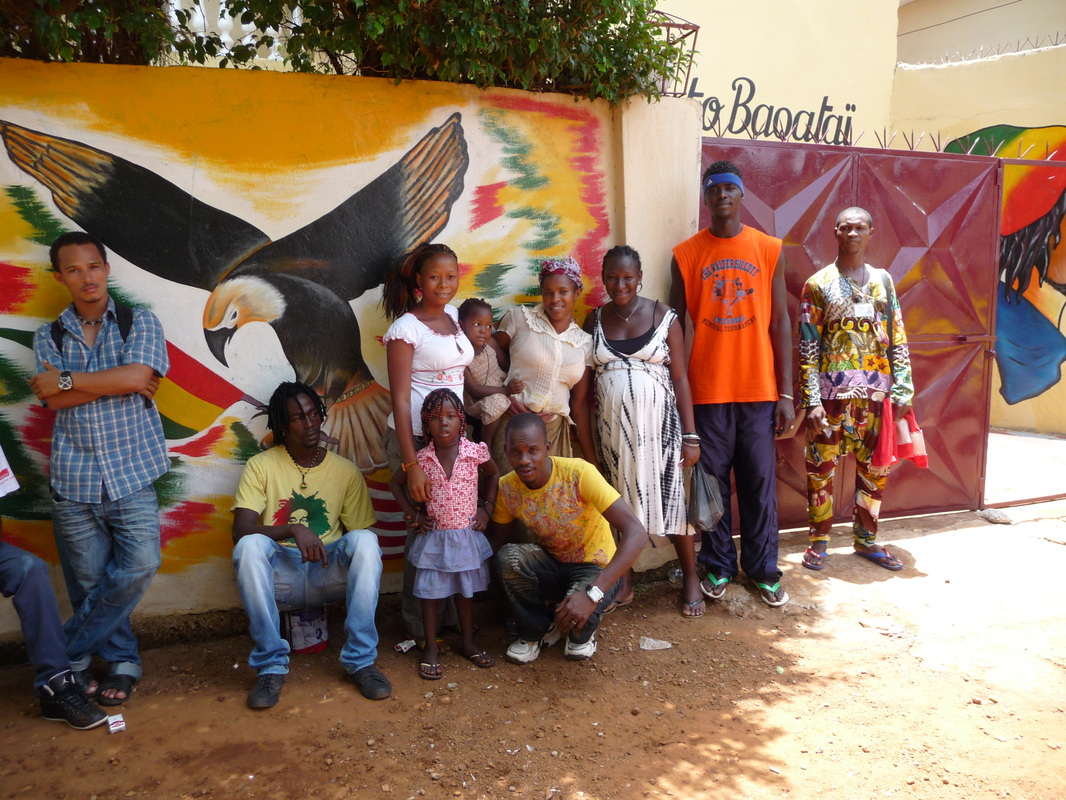
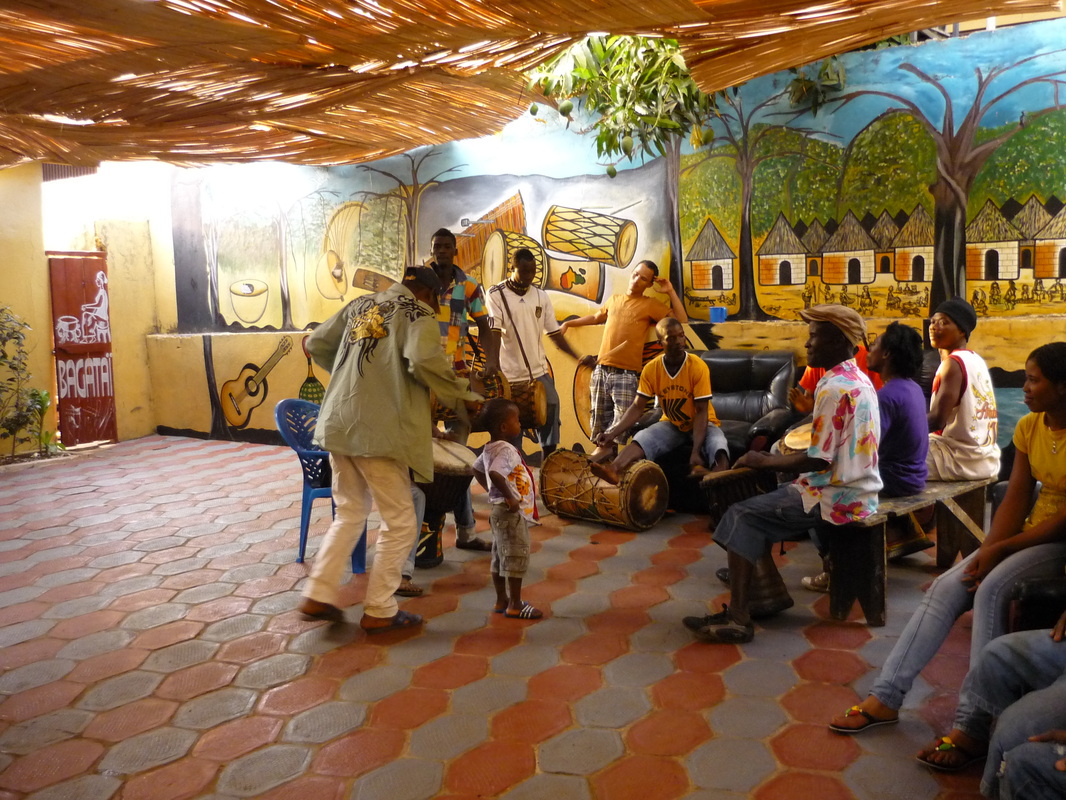
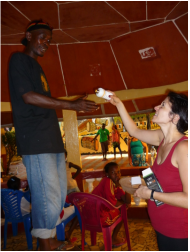
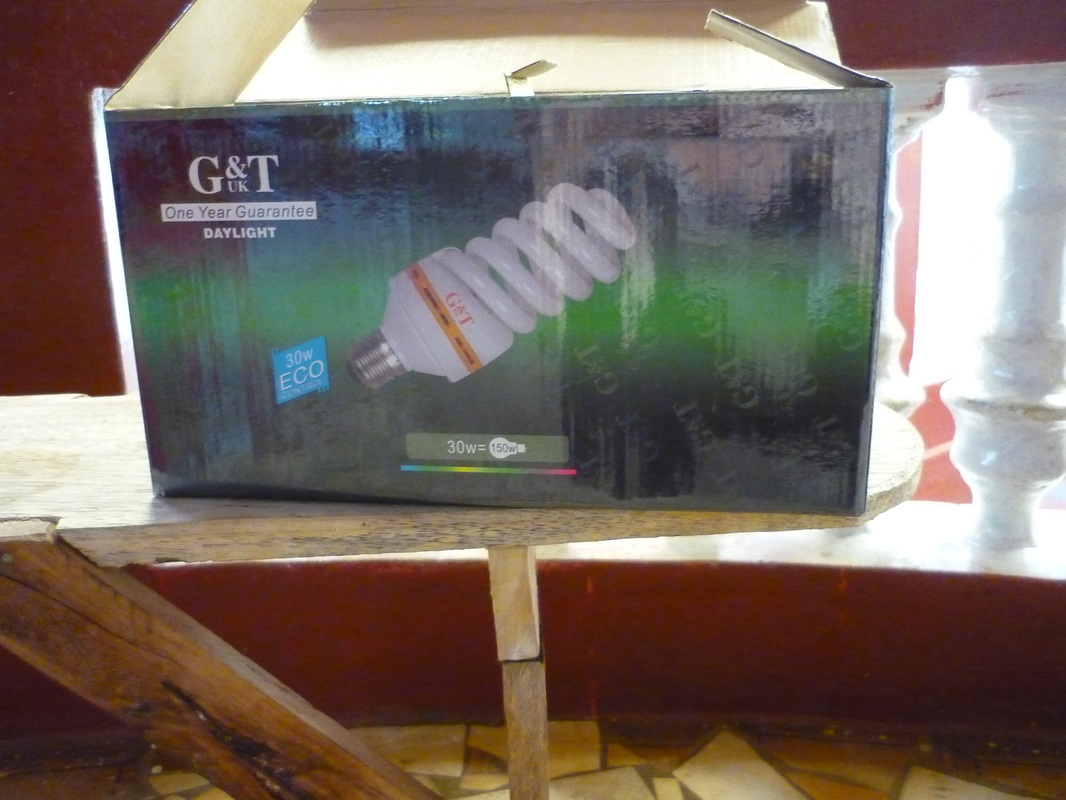
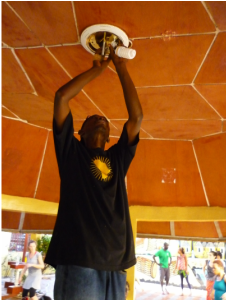
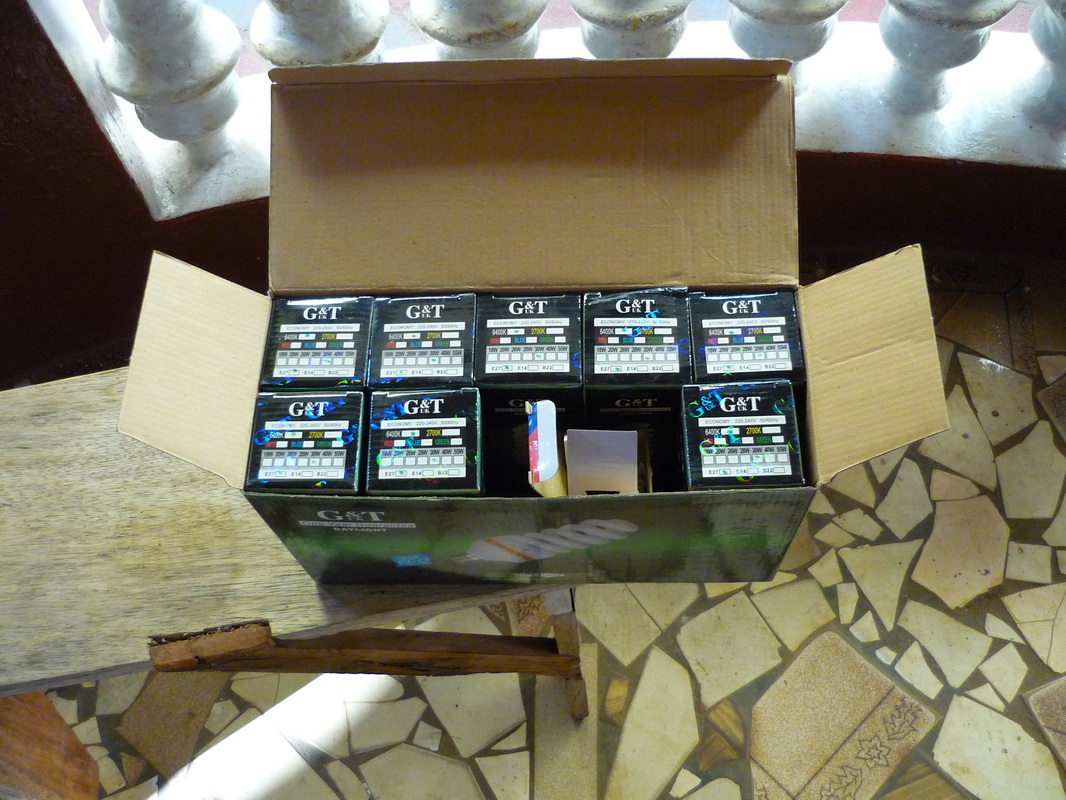
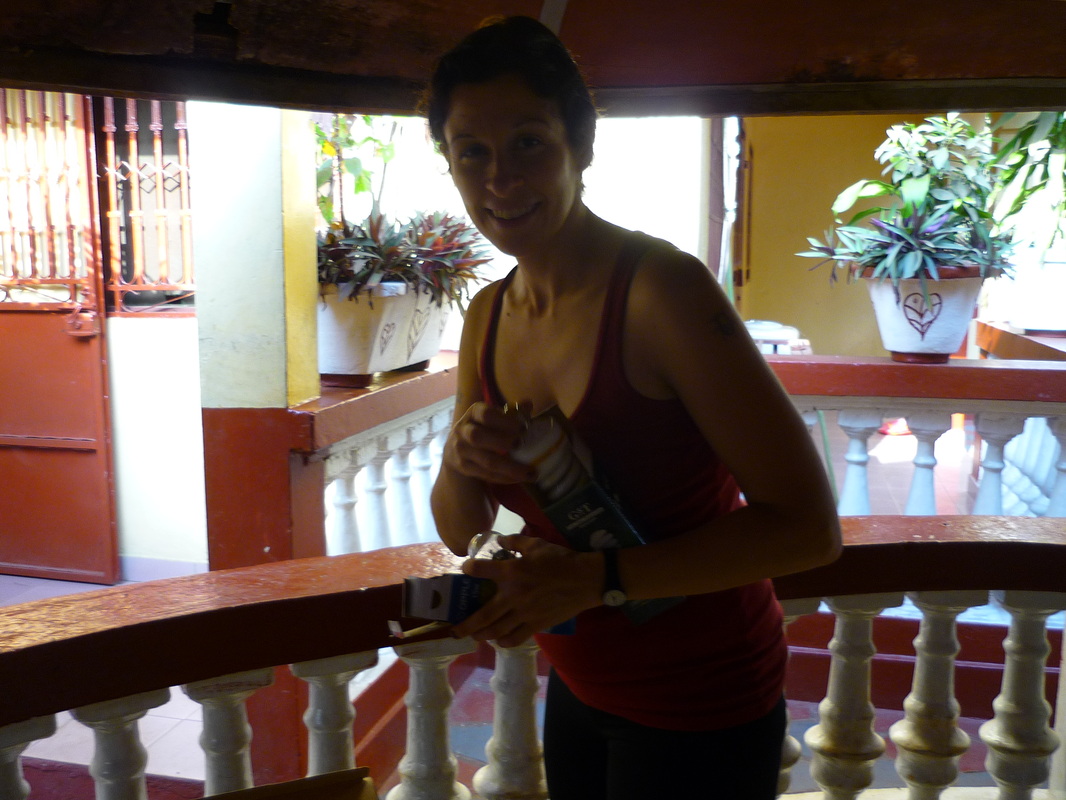
 RSS Feed
RSS Feed